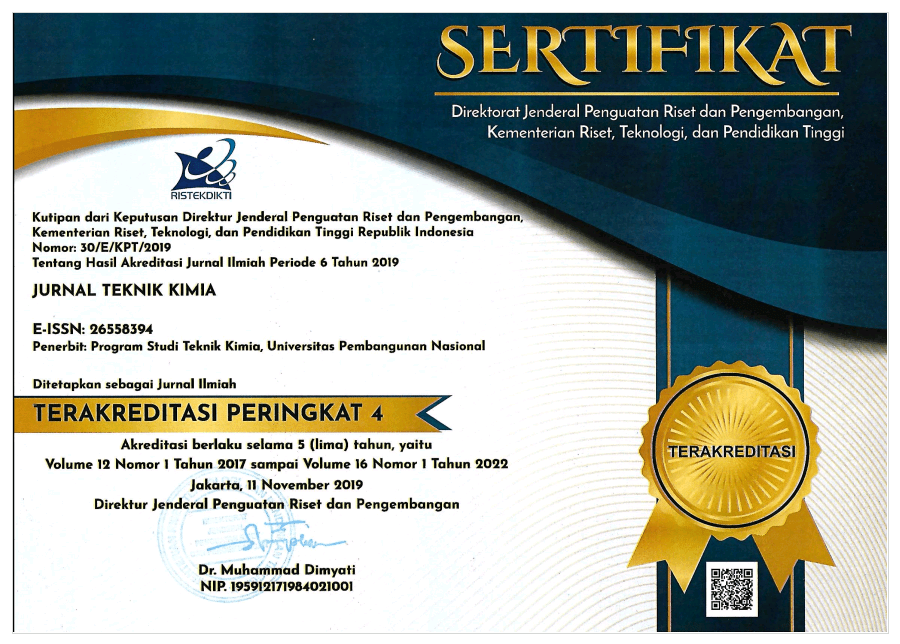METYL ESTER PRODUCTION IN ASLANT SEALED TRANESTERIFICATION REACTOR
Abstract
Biodiesel, the environment friendly substitute alternative for solar, is made from a resource which can be renewed. Exploiting off grade fish oil as raw material for biodiesel represent the grand breakthrough in increasing value of waste industrial fish. According to research funded by PT Rekayasa Energi Alternative Mandiri (PT. REAM) and DP2M Dikti, industrial scale efficiency can be reached by continuous esterifiications buffle reactor in series with transesterifications sliding reactor. Biodiesel production was done at a reactor prototype which has capacity of 20 liter/hour.From all variables studied, it seemed that temperature and catalyst concentration had the highest effect on the methyl esters conversion, so these variables are controlling parameters. The optimized set of conditions were sodium methoxide (NaOCH3) as the catalyst at a concentration of 0.2 % volume, reaction temperature of 60°C, and 60 menute. The experiments resulted in an average product yield of 94.2%. Biodiesel density of 0.8898 kg/m3 , Iodine number of 7.4, flash point 272 oC, and pour point of 2oC
Key words: biodiesel, slanted baffles reactor, transesterification

This work is licensed under a Creative Commons Attribution 4.0 International License.
Pusat Publikasi | Teknik Kimia | Fakultas Teknik (Gedung Giri Reka ) | Universitas Pembangunan Nasional "Veteran" Jawa Timur, Indonesia
Jln. Raya Rungkut Madya, Gunung Anyar Surabaya, 60294 Email : jurnaltekkim@upnjatim.ac.id








